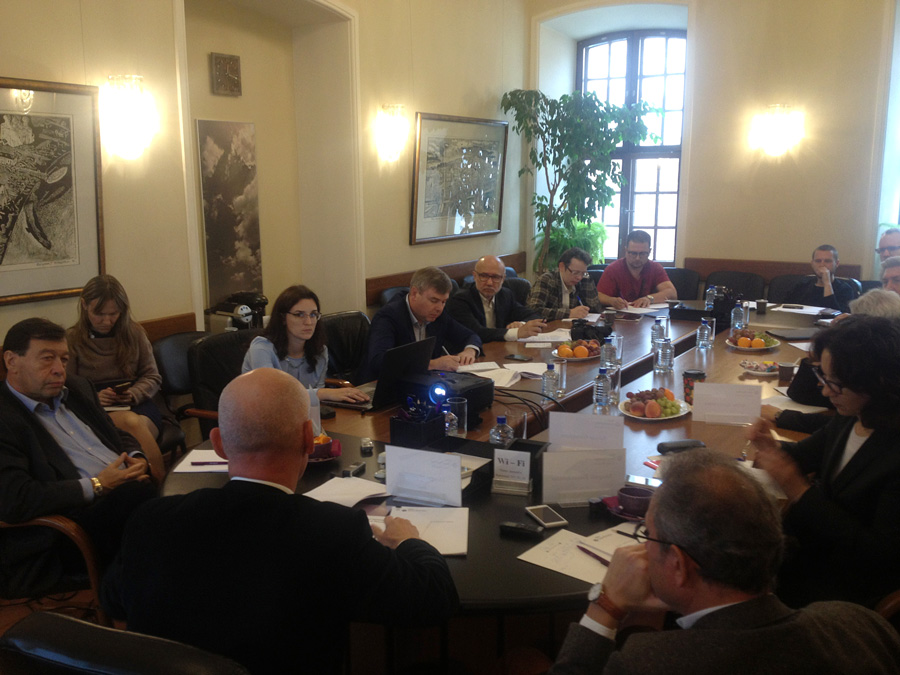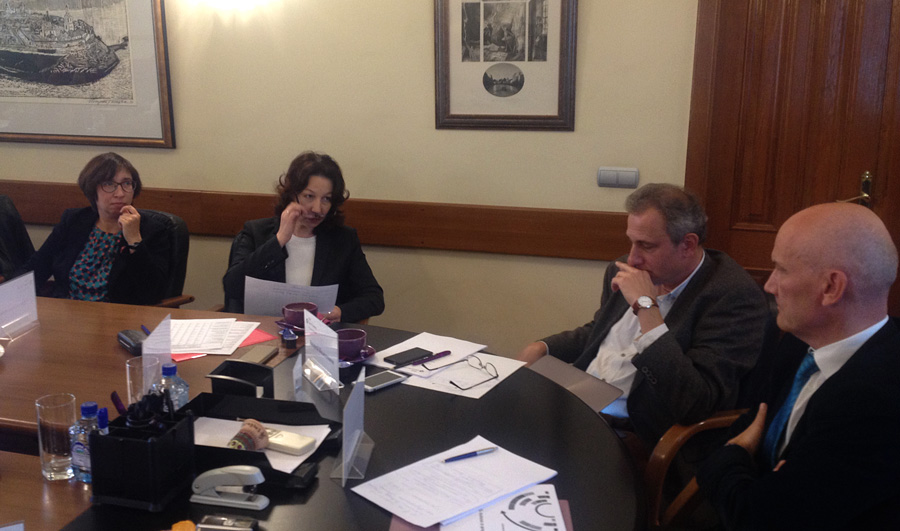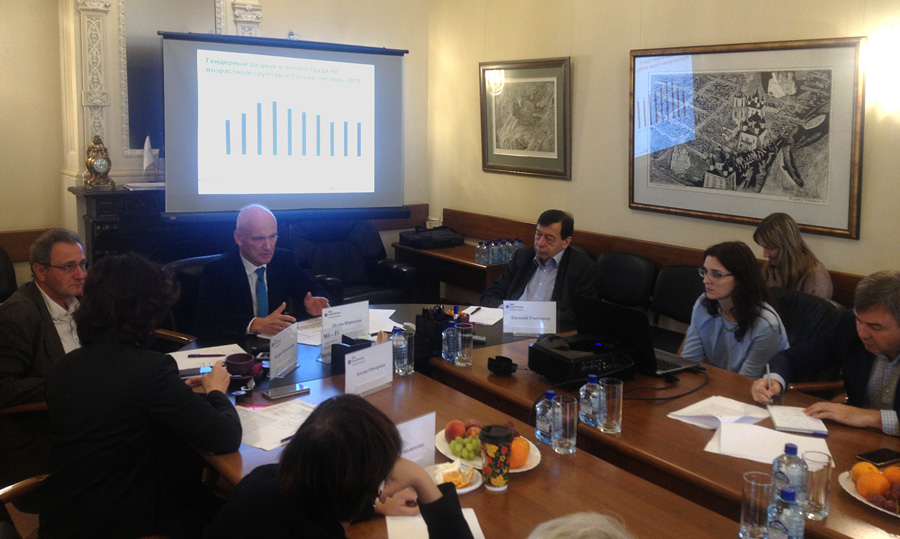FBK Economic Club Experts Discuss Gender Pay Gap
Is there gender pay discrimination in Russia? What are the reasons why the gender pay gap emerged and evolved and how is it connected to economic growth rate? In what way is the situation different in our country and in Europe? These were some of the questions discussed by FBK Economic Club experts.
FBK Strategic Analysis Institute has prepared a study titled “Gender Pay Gap”. Igor Nikolaev, Director of the Institute, has noted that this gap (between the average man’s and woman’s remuneration) is typical for all countries but in Russia its development has certain specific features. Since 2005 the pay gap has decreased from almost 40% to 27.4%. On average, in Europe the pay gap has decreased from 17.7% to 16.4%, at the same time, for example, in Germany the pay gap is 22% and in Italy it is 5.5%.
“The gender pay gap to a large extent also depends on age. In Russia the pay gap continuously grows and reaches a maximum of 33% in the 35 to 39 age group and gradually decreases to 23% in the 55 to 65 age group. In the EU countries the situation is different. The pay gap constantly grows with age and reaches a maximum after the age of 60,” Igor Nikolaev noted.

In the opinion of Lilia Ovcharova, Head of the Human Capital Department of the Centre for Strategic Development, this can be explained by specifics and traditions related to child-bearing and parenting. Having children is a higher priority for Russian women than building a career, which certainly affects average remuneration. Furthermore, employers are unwilling to hire women who are likely to take maternity leave.
“On the whole, the gender pay gap originated in the period of the industrial economy when physical strength was important to earn more. In addition, in the Soviet times women were not allowed to work in harsh conditions which, as a rule, meant high paying jobs,” Lilia Ovcharova added.

Anna Lukiyanova, Senior Research Fellow of the Centre for Labour Market Studies of the National Research University Higher School of Economics, has highlighted that judging from the European experience, improvement of the level of women’s education plays an important role in narrowing the gender pay gap.
“An institutional factor also helps to narrow the gap. Laws of many countries give preference to women. For example, mandatory female representation in boards of directors and legislative bodies even if it is not required by laws. Maternity leave is necessarily granted to men as well. We do not have such things in Russia,” Anna Lukiyanova said.

Evgeniy Gontmaher, Deputy Director of the Institute of World Economy and International Relations of the Russian Academy of Sciences, is not sure that tough actions should be taken to narrow the gender pay gap. It especially concerns quotas and obligations.
“Many new requirements may be simply ridiculous rather than useful, or even harmful. Imagine that there is a quota for male elementary school teachers. I believe that it is enough to lift formal restrictions so that women can be engaged in various activities on a non-preferential basis. And eventually gender issues will become less relevant,” Evgeniy Gontmaher underlined.
FBK Economic Club is a unique discussion platform where journalists can meet well-known economists, politicians and public officials in order to discuss a wide variety of economic issues. Analytical reports prepared by FBK are also presented in the Club.
Report, PDF (rus)
| Recommend | |
|
| |
